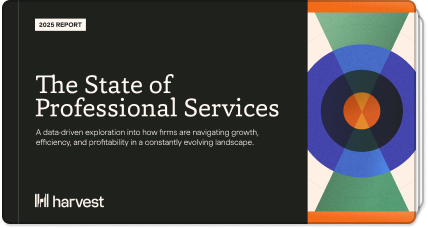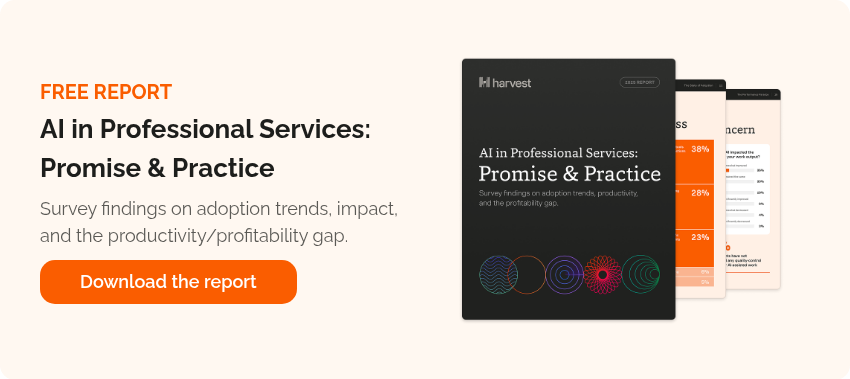As founder and CEO of Planetary, Josh Gross has spent over a decade watching the digital agency industry evolve from manual, technical processes to the automated, AI-powered workflows that define modern marketing.
But according to Josh, what’s happening now with AI and search represents the most fundamental shift agencies have faced in over a decade. “Your SEO strategy is broken,” he recently declared on LinkedIn, sparking conversations across the agency community about how Google overviews, ChatGPT, and other AI tools are reshaping the way customers discover and research businesses.
Josh’s insights about the intersection of AI, SEO, and client expectations offer a roadmap for agencies navigating this transformation. His approach challenges agencies to think beyond traditional tactics and embrace the reality that search behavior has fundamentally changed.

The SEO Rules Have Changed Completely
The content marketing strategies that worked even two years ago are becoming less effective by the month. “Historically, you have your traditional SEO tactics, very heavily focused on the content side,” Josh explains. “But with these LLMs and AI tools now pulling content from sites and processing it in a way that doesn’t necessarily need that same structure, it opens up this whole world of needing to reconsider how pages are configured.”
Josh breaks SEO into two categories: content-focused and technical. While the technical elements—proper site architecture, structured data, alt tags—remain important for now, the content side requires a complete rethink. The shift is dramatic: instead of optimizing for individual keywords, agencies need to optimize for AI consumption and question/answer formats.
“Rather than someone searching for ‘laundry detergent’ as a keyword, they might go to ChatGPT and ask, ‘What’s the best laundry detergent for pet stains?’” Josh explains. “So rather than just making sure you have these keywords on the page, you might actually have a list of questions with comprehensive answers.”
It’s important to note, however, that this isn’t just about adding FAQ sections to websites. It’s about fundamentally restructuring how content is created, organized, and presented so that AI tools can extract and surface relevant information when users ask specific questions.
Your Customers Are Researching You; You Just Can’t Always See It
One of the biggest challenges agencies face in this new landscape is measurement. Traditional SEO metrics like rankings, click-through rates, and search console data don’t capture what happens when AI tools answer questions without sending users to websites.
“When people get their answers from AI instead of clicking through to your site, you lose all that valuable data about what they were searching for,” Josh explains. “You don’t necessarily know that your product is showing up or that your company’s name is showing up in the results in that blurb at the top.”
Josh points to emerging tools like Otterly.AI and Peec that help track AI-based search appearances, though he acknowledges they’re still developing. The reality is that agencies and their clients need to prepare for a world where brand awareness and consideration happen largely outside of traditional trackable channels.
“Someone will have an entire conversation with ChatGPT or Perplexity, get three-quarters of the way through the sales funnel, and then come down to maybe two or three options they’re considering,” Josh explains. “By that point, they’re really just looking at individual products. No brand is going to know that you’re being considered by that customer until they visit your site.”
Three AI Use Questions Every Agency Should Ask
Rather than fearing AI or embracing it uncritically, Josh developed what he calls an “AI use policy” for Planetary—a framework for AI integration with intention that respects both the technology’s capabilities and its limitations.
“The idea was that we will be thoughtful in how we put it to use,” Josh explains. The framework considers three key factors: where AI will be valuable, what data is being used (and whose data it is), and how the output will be applied.
“We don’t want to be just pushing stuff into tools that frankly you don’t know who’s even running. They’ve been around for five minutes and there’s one guy behind it,” Josh says.
On the design side, Planetary uses AI for inspiration, rapid prototyping, and generating placeholder assets before commissioning final illustrations. For development, AI speeds up debugging and handles routine coding tasks that developers don’t always love. But human oversight remains non-negotiable.
“I consider AI like a junior-level person that you’re working with and all of their work needs to be double-checked before it goes out,” Josh explains.
Clients Now Expect You to Use AI (And Want to Know How)
The conversation around AI usage has shifted dramatically. Where agencies once worried about client acceptance of AI-assisted work, Josh finds clients now expect it—and want transparency about how it’s being used.
“A year ago, we were seeing contracts coming through from some of our clients that were like, ‘You’re not allowed to use AI as part of this process,’” Josh recalls. The key is setting clear expectations about quality and approval processes. "Nothing goes from us to the client to customers without their sign-off on this being what they’re comfortable with going out the door," Josh emphasizes.
This transparency extends beyond AI usage to the broader client relationship. Josh sees agencies moving toward more strategic partnerships where the focus shifts from execution speed to strategic thinking and innovative problem-solving.
Faster Tools, Higher Stakes: The Expectation Shift
AI tools are making certain aspects of agency work faster and more efficient. Debugging happens quicker, asset generation is streamlined, and routine development tasks get automated. But Josh observes that this efficiency isn’t necessarily translating to lower costs—instead, it’s raising client expectations.
“I think what’s going to happen is clients will expect more to the output, basically more bang for their buck,” Josh predicts. “The rates aren’t necessarily going to change. The cost of projects aren’t necessarily going to change. It’s just the expectations of what can be delivered is going to get bigger.”
This shift makes strategic thinking even more valuable. “It’s going to be more about strategy and finding innovative solutions,” Josh explains. “The execution becomes a lot simpler because you have these partners. But you still need folks to know what to ask for at the end of the day.”
Beyond Billable Hours: The Metrics That Actually Drive Growth
After 12 years of running Planetary, Josh tracks three key metrics that reveal agency health and growth potential:
- Profitability and efficiency: Can the team manage projects more effectively? Are there opportunities to optimize team size and composition for different types of work?
- Project-to-relationship ratio: The shift from one-off projects to ongoing fractional engagements. “We’ve been pushing really hard on moving from purely project-based work to these longer-term engagements where we can work with clients and help them grow the site or platform we built for them.”
- Task-level efficiency: How quickly and effectively does the team handle specific types of work? This helps identify opportunities for optimization, whether through better tools, reusable components, or process improvements.
These metrics help the Planetary team make decisions about when to scale, what services to emphasize, and how to allocate resources as the industry continues evolving.
Building Agencies with Adaptability in their DNA
Josh’s experience suggests that successful agencies won’t just adapt to AI—they’ll build adaptability into their DNA. This means developing processes that can evolve with new tools, maintaining transparency with clients about capabilities and limitations, and focusing on the strategic thinking that AI can’t replicate.
“We can experiment more. We can prototype more quickly. We can find the right solutions more quickly, but you still need folks to know what to ask for at the end of the day,” Josh explains. “That’s where teams like us come in. We know the questions to ask and how to reach that particular goal.”
The agencies that thrive won’t be those that avoid AI or let it do all the work—they’ll be the ones using AI intelligently while doubling down on distinctly human capabilities: strategic thinking, creative problem-solving, and deep client partnerships.
As the search landscape continues evolving and AI tools become more sophisticated, agencies have a choice: adapt their strategies, embrace transparency, and focus on strategic value, or risk becoming obsolete in a world where traditional SEO tactics no longer drive results.
The transformation is already underway. The question isn’t whether agencies need to change, but whether they’ll change quickly enough to stay relevant to clients navigating this new reality.
Follow Josh Gross on LinkedIn for more insights on how agencies can adapt to AI-driven search and client expectations.
Harvest helps agencies track, optimize, and report on their work with the transparency and efficiency that modern client relationships demand. Start your free trial today to see how better time tracking can improve your agency's profitability and client partnerships.
















